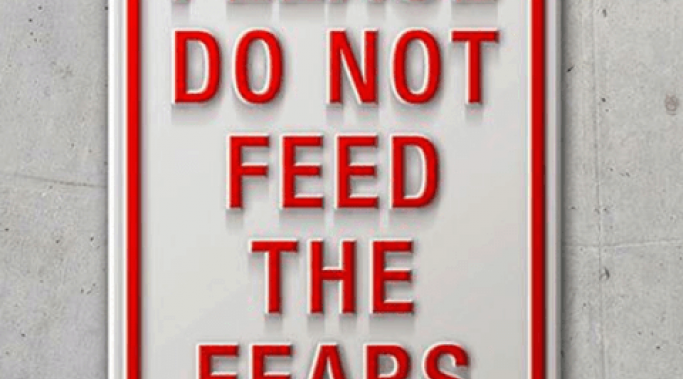Blogs
As a self-harmer, you’re going to have scars. You’re going to have cuts or burns or scrapes or bruises that stick around for the rest of your life. Sometimes, these marks can be hidden and forgotten about. However, some marks are not that easy to push aside and can haunt you.
I wasn’t a self-harmer who needed to dig real deep when cutting. I was calm after some small marks and a little pain because, that in itself, redirected me. (read: Self-Injury Cutting: Cutting Yourself to Relieve Emotional Pain) However, I do have self-harm scars that have lingered over the years that I do not think are going to go away.
Some of you may be the self-injurers who have a hard time hiding your marks with some foundation and bracelets. Some of you may feel embarrassed to wear short sleeves or a bathing suit because it is visible that you’re painted in pain.
For recovered self-harmers and those still struggling, we are “living with ladders.”
Everyday is a struggle – all those dealing with anxiety's racing thoughts and self-harm understand that. But anxiety is an issue that every human being puts up with, whether or not they want to admit it. For those who cut, pull hair, burn or head-bang, anxiety is usually what controls the self-harming behaviors (When Anxiety Leads to Self-Injury).
The title of this blog implies that I will be focusing on people in our lives who--for the most part--do not live with a mental illness. These people like to give us advice on what medications we need to take or tell us we don't need to take medication at all. It's confusing and, frankly, a real piss off.
Decision making
Making decisions is always on the mind of a parent with a child who has mental illness. What school will they go to? Will it meet their needs? What medications can we try? Which ones will work? Which ones don't? What does the therapist, teacher, psychiatrist, pediatrician say? Everyday, we as parents (in general) make decisions in the best interest of our children. But, when does that transition from us to our children? When do they start making decisions about their own lives?
Therapist and blogger Emily Roberts explains mistakes people make when trying to be confident and simple solutions to fix them.
Bipolar places limitations on our lives. It might be the fact that we can’t go out and enjoy a cocktail after work or it might be the fact that we can’t stay out all night. Or it might be the fact that we can’t work full time or that we have to live with medication side effects that make us sick. Limitations are there, no matter how you look at it.
But what happens when you don’t respect those limits? What happens when you choose to ignore them?
I can tell you. You feel like a dog’s breakfast. Just ask me. I did it on Monday.
Kids and Their Psychiatric "Disorders"
This morning, I read a disturbing headline: 1 in 5 Kids May Have Psych Disorder.
Say what? It makes me wonder: What are we doing to our children?
As someone who has been in the field for 20 years, I have seen diagnosing children with a psych disorder do more harm than good. Children fulfill the prophesies of these mental health diagnostic labels and it is very hard to recover from these identities supported by years of mental health practitioners, with albiet good intentions, telling them what is wrong with them and that they have to "cope" with it.
If you've ever been depressed, anxious or angry you know how emotions can impact your appetite. Any one of those experiences can make you eat more or less depending on the day and the intensity of what you're feeling. And then what happens? If you skip some meals or binge on junk food, do you feel better or worse?
If it had been just me, I probably could have ignored it. But it wasn't just me. During one of my many psychiatric hospitalizations, I observed what I believed was a systematic pattern of abuse of restraints. Patients were often restrained without the least restrictive means being tried and without a doctor's order or evaluation. They were often restrained for up to an hour, even if they were out of danger. I knew this was illegal. But how was I supposed to fight back?
Did you know that Socrates suffered from agoraphobia? Did you know that Kim Kardashian is credited with inventing narcissism? Did you know that Nostradamus committed suicide on Easter just so he could get credit for predicting the day of his own death?
If you said, “Yes” to any or all of these statements you might want to consider your sources because they are absolutely not true. (Paris Hilton invented narcissism.)
The world of mental illness is a quagmire of myths, misperceptions, and odd facts. So, instead of our regular cerebral deconstruction of themes relevant to the mental health community, let’s have a little fun and examine some of them.









I also have DID. And I know that it is not safe for people or animals to live with me. This is just the facts and it’s devastating. I know that to be ethical and non-harming I have to live alone. To see me, I look kind and sweet. And parts of me are. But not all the parts. I’ve been officially diagnosed and in therapy over two years, and even if we all heal, I don’t think it’s worth the risk that I could hurt or kill somebody. Some risks can be taken, but I don’t think I could say, ‘hey- let’s move in together. By the way I had violent tendencies but I think I have it taken care of. You ok with that?’